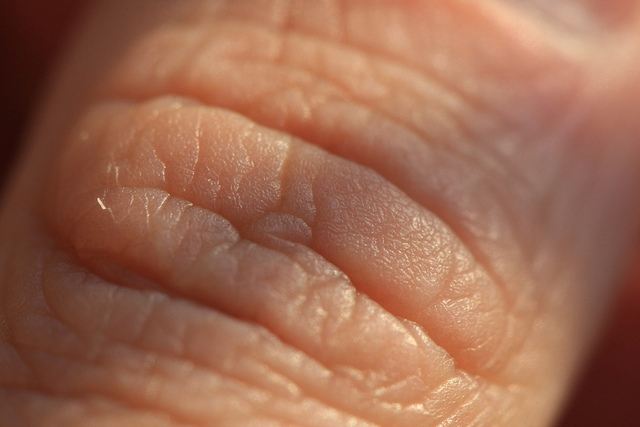In recent years, a vast array of health trackers have infiltrated the market. With the growing consumer focus on well-being, there has been an increasing demand for watches and little bands that keep track of steps, heart rate, sleep and many other measurements. Over time, these trackers have gotten thinner, lighter, sleeker, and smaller. But where will these devices take us?
Image Source: Image Source
As it turns out, researchers in Japan have been developing a health tracker that will take the term “personal health tracker” to a whole new level, which can be summed up as “skin deep.” These scientists created a thin, flexible layer of film that can be applied directly onto the skin. Inside this membrane-like film is a variety of electronic components, such as polymer-light-emitting diodes and organic photodetectors. These fancy components allow the film to track the oxygen level in the blood and then illuminate the film to indicate the results.
So, just how thin is this film? Take your epidermis, the outermost layer of your skin. It is composed of 4-5 layers, and depending on the location, can vary in thickness from 0.05mm to 1.5mm. This flexible organic photonics skin, as dubbed by the scientists, is 0.3um thick, about 10 times thinner than your skin. Aside from the thinness, this new tracker can also work when crumpled, and compared to earlier prototypes, this model consumes less energy and produces less heat.
This idea of creating electronic skin is not new. Scientists have already created these monitoring devices using non-organic materials. However, with this new study, researchers have opened the door for more research to be conducted on using organic and inorganic materials to produce these trackers. Costs will be dramatically reduced by using organic materials, making mass production and widespread availability a possibility in the future.
However, this technology is not quite ready to be rolled out in the market. With additional research and development, perhaps one day these health trackers will appear, almost invisible to the eye and integrated with our body.
Feature Image Source: Adrian Scottow










